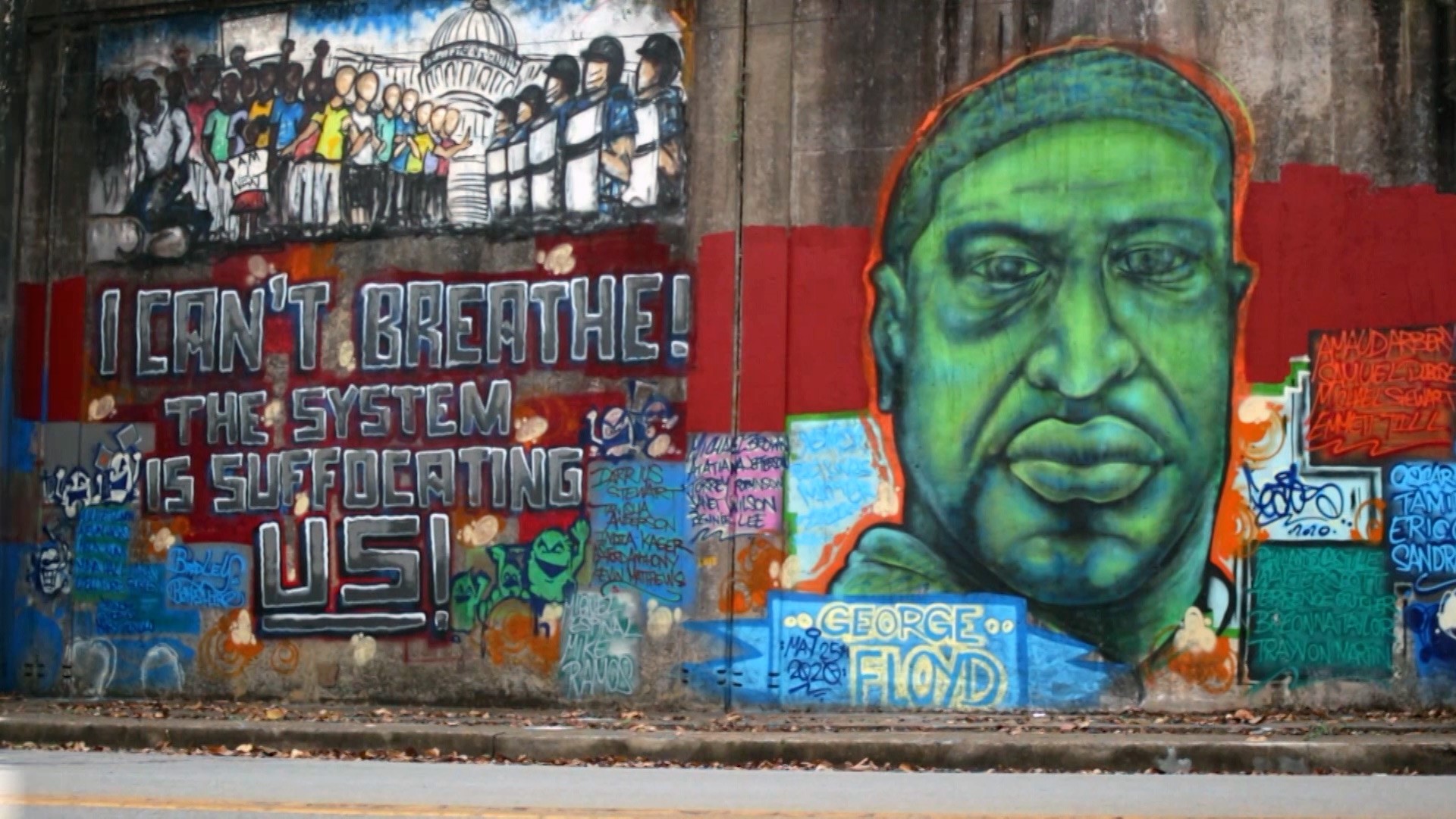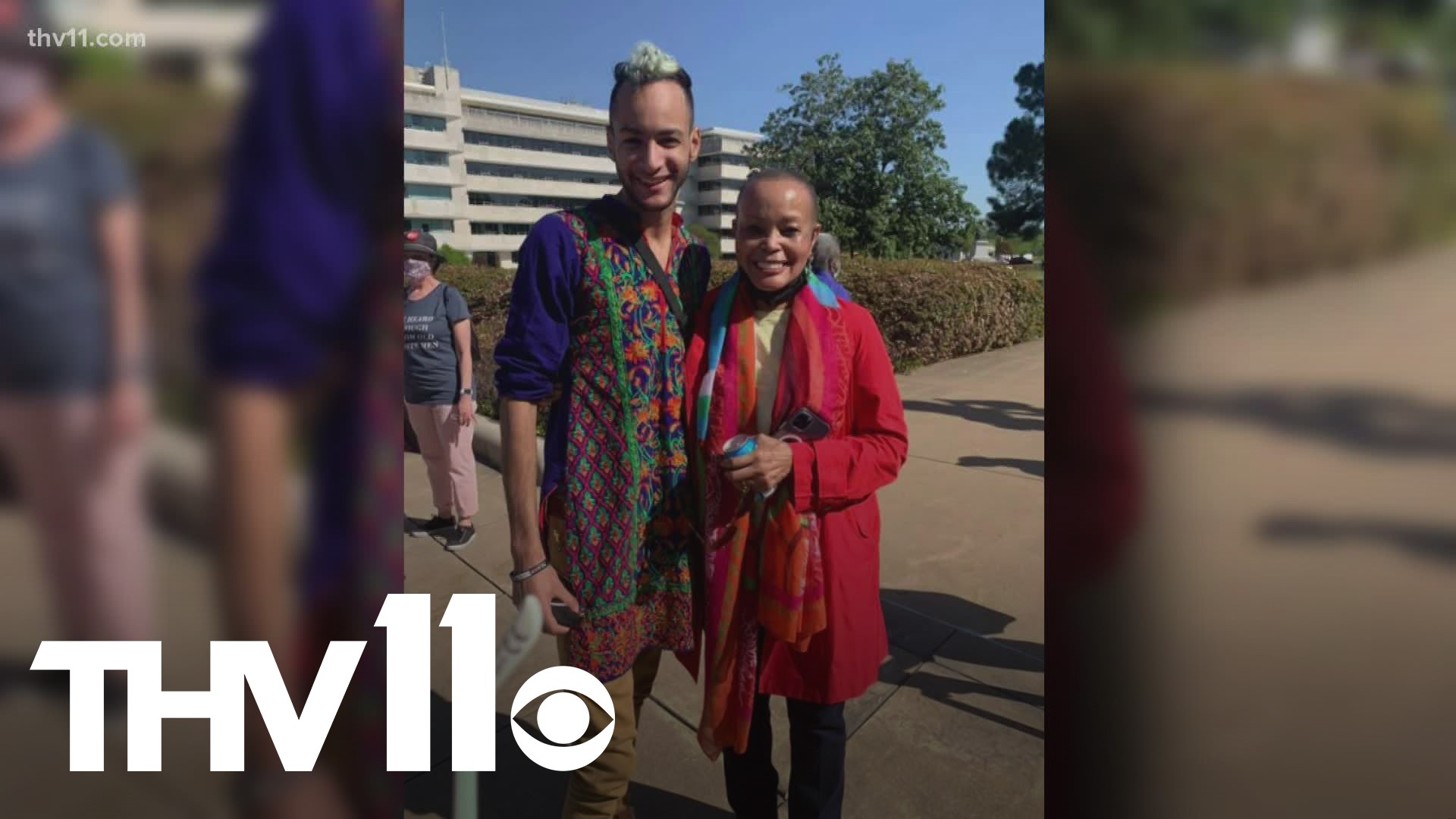How Arkansas leaders and activists are fighting racial injustice one year after George Floyd's death
A year after George Floyd's death, we talk to local leaders and activists to learn what they are doing to fight racial injustice in America and in Arkansas.

One year ago, the nation watched as a police officer placed his knee onto the neck of George Floyd for more than nine minutes, which ultimately led to his death.
At that time, our own Marlisa Goldsmith challenged everyone to fight racial injustice and asked what you would do to help. Now, a year later, Goldsmith looks at what city and community leaders have done in the past year to create change.
What leaders have done
It was 330 days after George Floyd's death that former Minneapolis police officer Derek Chauvin would be found guilty of murder.
But it was those nine minutes and 29 seconds that America will never forget.
Little Rock Mayor Frank Scott Jr. told us that, "You knew from the start that a guilty verdict was justice."
"There's a sense of relief, but not necessarily a sense of satisfaction," said Phillip Pointer, a senior pastor with St. Mark Baptist Church.
Pulaski County Sheriff Eric Higgins said the guilty verdict was appropriate and something that the community needed to see.
A murder on public display at a time when much of America was quarantined and had no choice but to repeatedly watch the racial injustice plaguing so many people of color across the country.
Floyd's death sparked nationwide protests as well as demonstrations in Canada, Europe, Africa, Asia, and Oceania.
Little Rock leaders and activists joined in solidarity, marching to change systemic racial injustices.
Shortly after Floyd's death, our own Marlisa Goldsmith sat down with local leaders to learn what they thought needed to be done in the days ahead to change the historical narrative.
“I wouldn’t necessarily say to a community, 'go heal,' when there is an entire country that is causing the pain," Tamika Edwards told us a year ago. She is the executive director of the Social Justice Institute at Philander Smith College. "I would say to the country, 'go change.' Change the laws that create the attitudes that push these outcomes.”
In the past year, people like MD Hunter have turned their anger into action, pushing lawmakers to update policies.
“We want to be out here, we want to be screaming, letting people know about our voices, but there’s also other ways to do that,” Hunter said.
This past April – on the same day the jury reached a guilty verdict in Chauvin’s trial – Governor Asa Hutchinson signed a bill into law requiring every Arkansas officer to receive yearly training that aims to prevent excessive force.
“I think that’s some progress requiring all law enforcement agencies in the state to be required to provide the duty-to-intervene training," Higgins said. "That’s a step. I think there’s still a lot of work that needs to be done.”
In Little Rock, Mayor Scott said that in addition to police reform policies, the city has established an independent review committee. The city also banned neck restraints and chokeholds. Scott said that they believe it will help "suppress a number of potential negative issues."
While change won't come overnight, these leaders are hopeful this momentum continues.
Maybe we will see a day where all people are created equal.
“If we think of things systemically rather than situationally, it will help us to maintain that consistency to build the momentum that ultimately will bring about change,” Pointer said.
“We have to make sure that everyone is being held accountable," Hunter told us. "I don’t care who it is; a police officer, a legislator, anybody. Hold them accountable and make sure we have the proper things to put them accountable as fast as possible.”
Where do we go next?
We first met MD Hunter in the middle of a Little Rock protest last year at the Arkansas State Capitol.
Hunter jumped into action, helping fellow protesters rinse out their eyes after police teargassed the crowds.
"There was so much that happened [during the protests]. There was a lot of anger, there was a lot of rage," Hunter said.
A short time after that, we caught up with him working with Little Rock C.A.R.B.O.N. as they organized cleanup efforts after protests led to trashed and vandalized property.
"We're not just out breaking stuff," Hunter told us last June. "We're actually trying to help our own communities build up."
He, along with several other community members, sat in front of Little Rock’s City Hall for seven straight days to demand change to our local laws and policies aimed at protecting all people.
"They know who we are, they know what our message is, they know what we want done," he said.
Months after the protests stopped and the Derek Chauvin verdict has been read Hunter, who is a full-time stylist and cosmetologist, is taking on a new challenge.
From the streets to the Capitol, he's now continuing his fight for civil rights in the government arena.
"There’s ways to come up here in this legislative session and say what we need done. We have board of directors meetings, we have all kinds of different things that could be happening" Hunter said.
While he continues to take a stand for justice and fight for change he’s urging others to join him because to see the change he believes we need, he knows it can’t be done alone.
"You could be running for office, you could be making sure people are registered to vote because that’s the thing that we need happening," he said. "We need to have people in this building right here who will make the changes we need to be done.”
Hunter and several others who led protests in Arkansas told us they have plans to run for office in upcoming elections.
They welcome anyone who wants to join them. And if you don't, they ask that you at least vote which is one of the loudest ways to make your voice heard.


